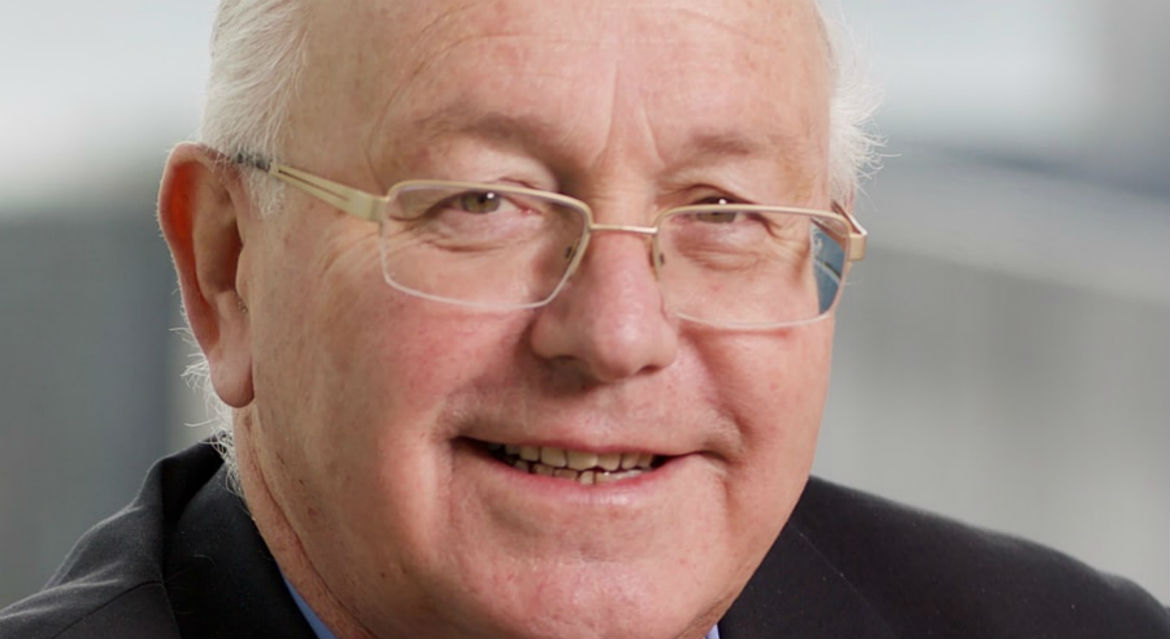Success of multi-million pound drug discovery collaboration to be celebrated
Published On Sun 4 Nov 2018 by Grant Hill

The success of a University of Dundee collaboration that has attracted almost £60 million of investment, helped develop dozens of drugs for clinical use and won the prestigious Queen’s Anniversary Award will be celebrated next week.
Scientists, politicians and representatives of some of the world’s biggest pharmaceutical companies will come together to mark the 20th anniversary of the University of Dundee’s Division of Signal Transduction Therapy (DSTT). A reception will be held at V&A Dundee on Monday 5 November ahead of a celebratory symposium at the University’s School of Life Sciences the following day.
Founded in 1998, the DSTT is the world’s longest running collaboration between academic research laboratories and the pharmaceutical industry. A 2016 funding renewal saw pharmaceutical giants Boehringer Ingelheim, GlaxoSmithKline and Merck provide £7.2 million of support until 2020, enabling scientists at Dundee to continue their fundamental research in multiple therapeutic areas, including cancer, arthritis, lupus, hypertension and Parkinson’s disease.
The consortium has now attracted £58 million of investment since its inception. It is widely regarded as a model for how academia and industry can interact productively for which it was awarded a Queen’s Anniversary Prize for Higher Education in 2006.
The DSTT works with the participating companies to identify novel drug targets and develop enabling technologies that have accelerated the development of improved drugs to treat global diseases that target enzymes termed 'kinases' and the ubiquitin system within the body.
Professor Sir Philip Cohen, co-founder of the DSTT, said, “When the DSTT was founded, most pharmaceutical companies did not think that kinases were good drug targets, and there was scepticism that this novel collaboration between academia and pharma would last very long.
“Not only is this collaboration still going strong 20 years later, it has led to the development and clinical approval of over 40 drugs that target kinases, so far mainly for the treatment of cancers, with sales of many billions of pounds a year.
“The research of the Dundee academics involved in the collaboration has identified novel drug targets and developed enabling methodologies that have helped to launch and accelerate dozens of new drugs discovery programmes in the participating pharmaceutical companies. The collaboration has created two new biotechnology companies in Dundee and also given our students unique insights into how the pharmaceutical industry works, which has had a profound influence on their subsequent careers.”
The DSTT was founded by Sir Philip Cohen and Professor Sir Pete Downes. It comprises 22 research teams at the School of Life Sciences, 12 of which are based within the Medical Research Council Protein Phosphorylation and Ubiquitylation Unit (MRC-PPU). Professor Dario Alessi took over as Director of DSTT in 2012, with Professor Sir Philip acting as one of its Deputy Directors.
Professor Sir Pete, now Principal and Vice-Chancellor of the University, said that a key to the success of the consortium had been the ability to make new research by the Dundee team available to all the participating companies whilst building confidential relationships and trust with each individual company.
Kinase drug discovery accounts for about 30% of the R&D budget of the pharmaceutical industry and over 50% of global cancer drug discovery. Dundee’s School of Life Sciences is the world’s largest centre for the study of kinases and the ubiquitin system with some 200 scientific and support staff working in this area.
Among the DSTT’s successes was helping to develop dabrafenib, which is used in skin cancer therapy. This, and another drug used in the treatment, target kinases whose functions in the body were identified by scientists at Dundee.
Dr Malcolm Skingle, Director of Academic Liaison at GSK, said, “I have worked at the interface between academia and industry for more than 25 years and, over this time period, the DSTT at Dundee has produced ground breaking science. Their openness when working with industry has put Dundee firmly on the world’s scientific stage.”
For media enquiries contact:
Grant Hill
Press Officer
University of Dundee
Nethergate, Dundee, DD1 4HN
Tel: +44 (0)1382 384768
Mobile: 07854 953277
Email: g.hill@dundee.ac.uk